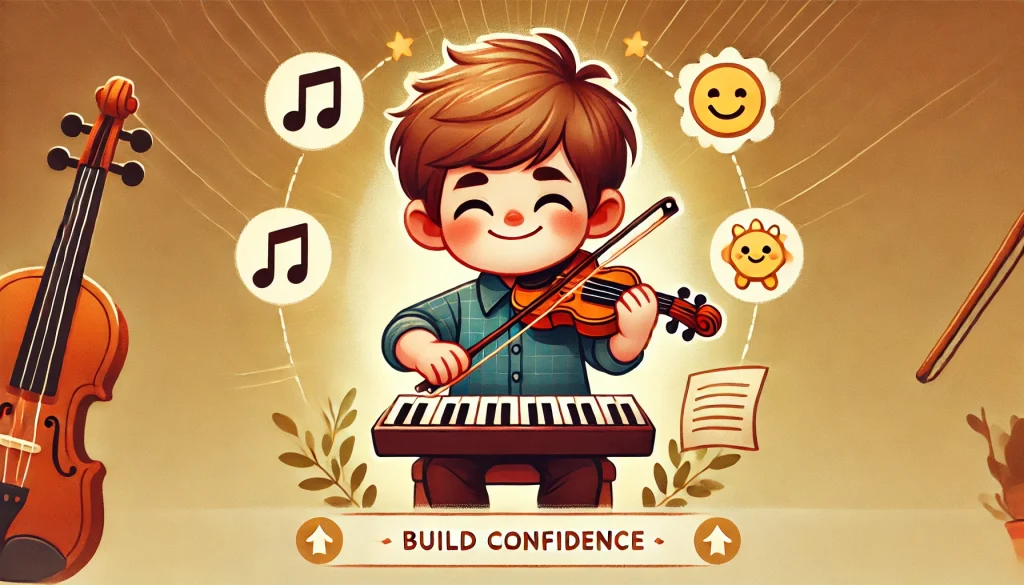
Every parent wants their child to feel confident and capable. While sports and academics play a role, one often-overlooked tool for building self-esteem is music lessons. Learning to play an instrument not only teaches children a valuable skill but also helps them develop confidence, discipline, and a sense of accomplishment.
Encourages a Growth Mindset
One of the biggest confidence boosters for children is learning that effort leads to improvement. When a child starts music lessons, they might struggle at first. But with practice, they begin to play songs they never thought possible. This experience teaches them that mistakes aren’t failures—they’re steps toward progress. Over time, they develop a growth mindset, understanding that hard work and persistence lead to success.
Provides a Sense of Achievement
Nothing builds confidence like mastering something challenging. Each time a child learns a new song, perfects a difficult rhythm, or performs in front of an audience, they gain a sense of achievement. These small wins add up, showing them that they are capable of setting and reaching goals.
Improves Social Skills
Music lessons often involve group activities, whether it’s playing in a band, singing in a choir, or performing at recitals. These experiences help children develop communication skills, teamwork, and the ability to work with others. Playing music together creates a sense of belonging, reducing social anxiety and helping children feel more comfortable in group settings.
Helps Overcome Stage Fright
Public speaking and performing in front of others can be nerve-wracking, but music lessons provide a safe space to practice these skills. Performing for family, friends, or even small groups teaches children how to manage their nerves and gain confidence in front of an audience. Over time, this ability translates into other areas of life, such as class presentations or speaking up in social situations.
Strengthens Emotional Resilience
Music allows children to express themselves in ways words sometimes cannot. Whether they’re feeling happy, sad, or frustrated, playing an instrument gives them an outlet for their emotions. This self-expression helps them process feelings in a healthy way, boosting their emotional resilience and overall confidence.
Encourages Independence and Responsibility
Learning an instrument requires practice and dedication. Children must take responsibility for their progress, remembering to practice and improving their skills over time. This sense of ownership builds independence and self-reliance, reinforcing the belief that they have control over their success.
A Lasting Impact
Confidence gained through music lessons doesn’t disappear—it carries over into school, friendships, and future challenges. When children see themselves improve at something as complex as playing an instrument, they begin to believe in their ability to tackle other difficult tasks in life.
Music is more than just notes and melodies; it’s a powerful tool for building self-esteem and helping children believe in themselves. If you want to give your child the gift of confidence, consider enrolling them in music lessons. It could be the key to unlocking their full potential.

